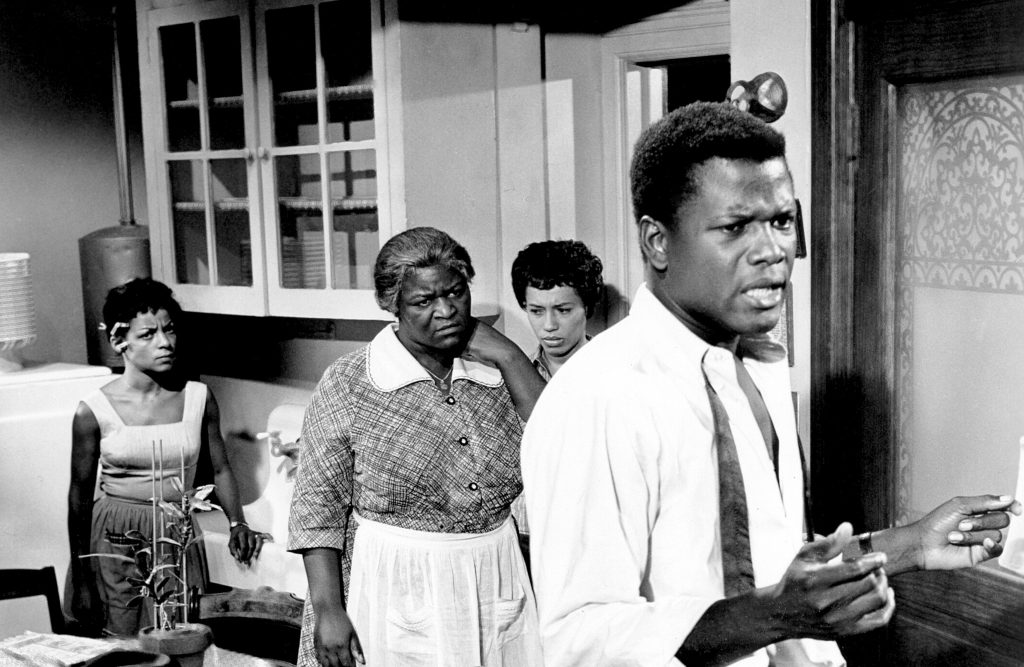
During Black History Month, I will be sharing my thoughts on films, TV, music, books, and popular culture that is shaped by people of color.
What happens to a dream deferred? Does it dry up like a raisin in the sun? —Langston Hughes
Recently, I sat down on a cold Sunday afternoon to watch the 1961 film, A Raisin in the Sun, with my fourteen year old daughter. I’ve seen this movie more than 10 times, but find something new and enlightening with each viewing. While watching it with my young human, the scenes resonated differently. Seeing her view the black experience from the eyes of the Younger family, a Chicago brood living in a three room slum apartment in South Side Chicago gave me an alternate perspective.
A Raisin in the Sun, originally a Broadway play written by Lorraine Hansberry, was inspired by her own family’s experience of moving into the Washington Park section of Chicago where they encountered problems with the white residents trying to block their move into their neighborhood. The movie follows the same theme, but has layers of depth sewn in.
Walter Lee Younger is a prideful black man who works as a chauffeur, a job which he detests. He wants to own a business so his son could have someone to look up to. He and his wife and son live in the small apartment with his sister and mother, who recently lost her husband. They share a bathroom in the hallway with other tenants, and his son sleeps on the living room couch because there isn’t any additional space for him.
The Younger’s former patriarch died and bequeathed his wife with a $10,000 insurance check. This is more money than the family has ever seen, and each family member has a suggestion of what they should do with the money.
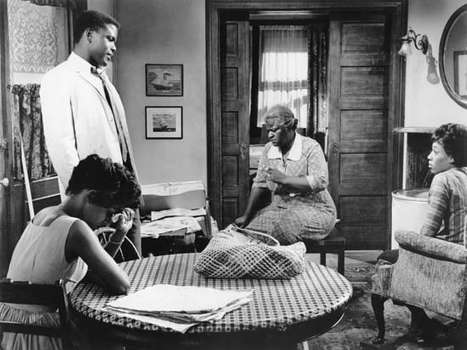
Walter Lee (Sidney Poitier) wants to open a liquor store with two other partners, Mama Lena Younger wants to buy a small house, something they can own and be free of the tenement and Walter’s wife Ruth Younger (Ruby Dee) wants this as well. Beneatha, Walter’s sister is a college student who wants to go to medical school with some of the money, and young Travis, he just wants everyone to be happy.
It’s a tale of the have-nots who worked so hard and yet are barely getting by, and this check could be a new beginning for them all.
We all know a Walter Younger—full of ideas and dreams, but not the capital to see them through. He’s mad at the world and his circumstances but with some money, he could finally be the man he’s always wanted to be. He dying little by little inside everyday while working for the man. He’s bitter and drowns himself in drink and thoughts of “what ifs” because no one understands him.
Many of a black woman could be Ruth of Beneatha or even Mama. Mama is from the sharecropping days, happy to see post slavery and is proud of how far we as a people have come. Beneatha, however, is looking for more and she sees college and medical school as her way out. She’s tired of singing We Shall Overcome, she wants to experience the overcoming part. And Ruth is a mother and wife with one on the way who is struggling to come to terms with the fact that her marriage is a mess and she’s about to bring another life into a cramped three room apartment.
When I watch A Raisin in the Sun, I feel so many emotions—hope, joy, pain, anger, sadness, and rage. I think of my family, my grandparents who sacrificed so much for both of my parents to be something. They went through some awful things in the Civil Rights Movement just to get a piece of the pie, and when they got it, it was hard to eat because the pie was bitter. The pie looked good, but when baked and sliced and served, it wasn’t what they thought it would be.
This film is required viewing for all, and if you haven’t seen it, I suggest you do so now. It will stir you up and make you feel some kind of way, but it will also give you another reason to continue to be thankful for what you have today.
We’ve come so far, and yet, we have so far to go.
Photo courtesy of TCM and Encyclopedia Britannica.
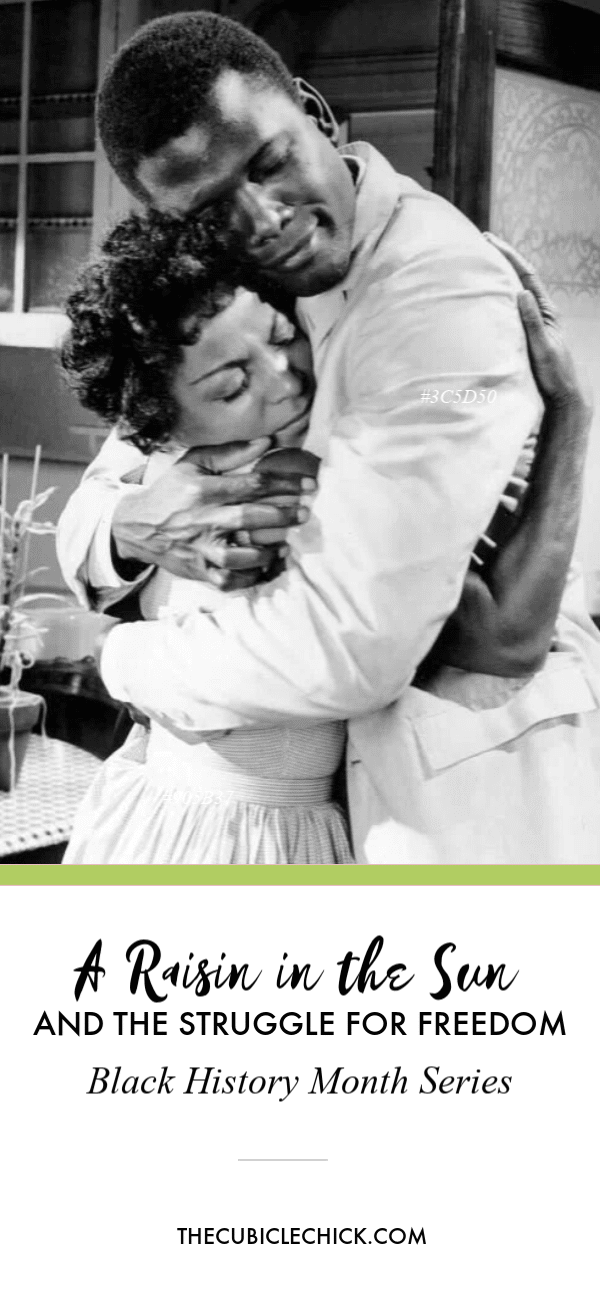


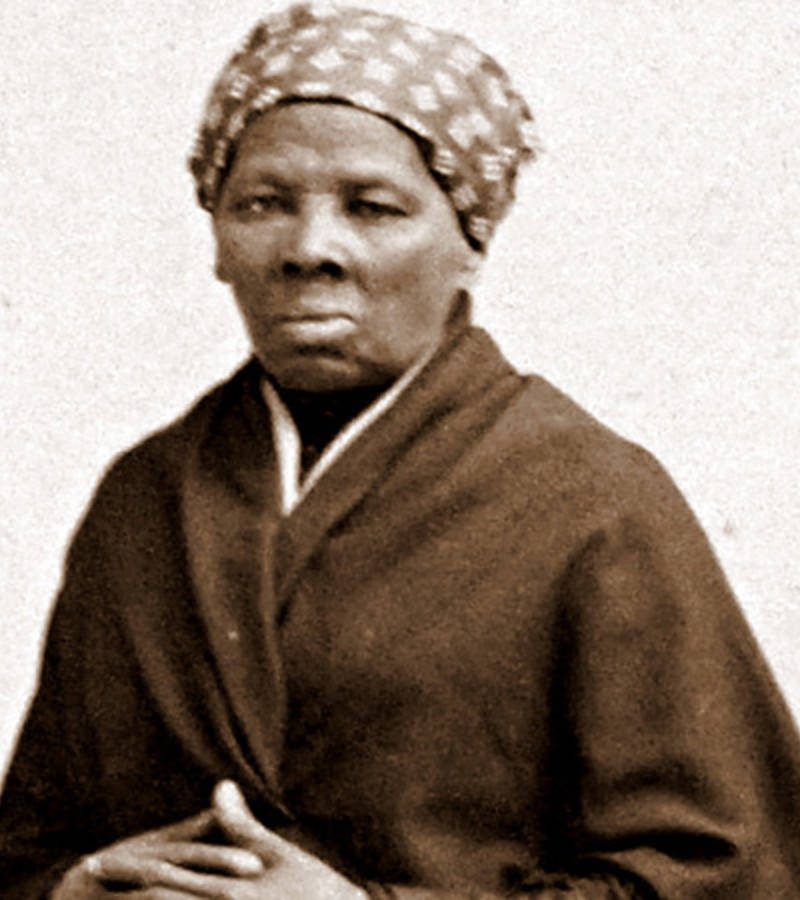
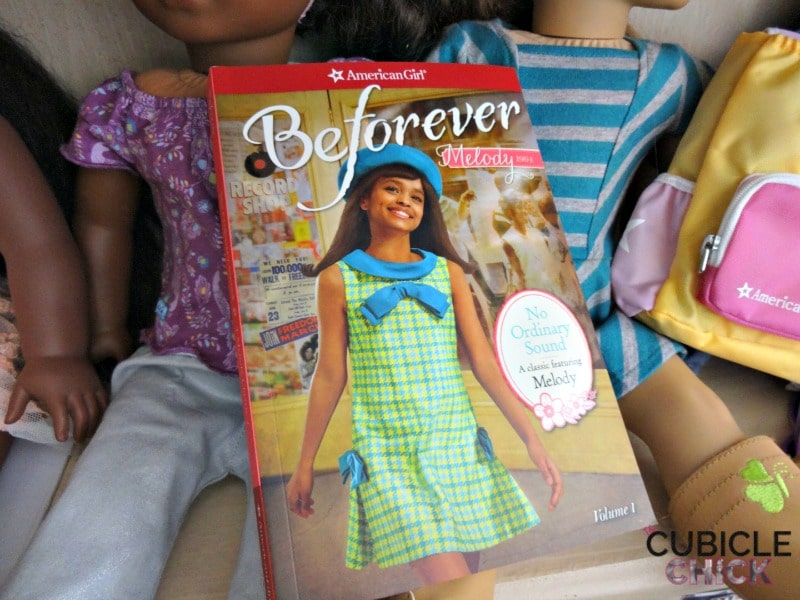
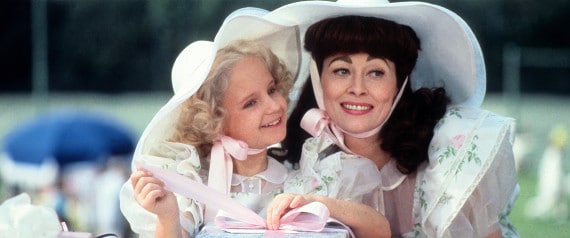

The movie & the musical are both powerful, although the movie is a lot darker. I’ve seen it a few times, but I haven’t seen it in nearly 30 years, switching to the musical… probably because it’s got a less depressing feeling. Might seem like a cop out; probably is. Great assessment!
Thank you, Mitch. The 70’s musical version Raisin was very good as well and did lighten the mood a little. Sidney’s portrayal however in the film stands many years later. Even in 2019, I feel that many black men can relate. Thanks for commenting.